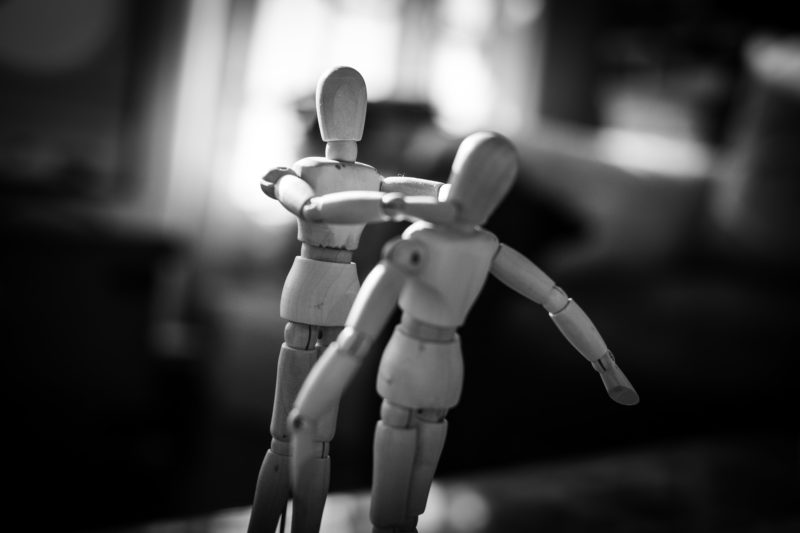Energetic Law #4 – Hate and Judgement
Energetic Law #4 – Hate and Judgement https://csuiteold.c-suitenetwork.com/advisors/wp-content/themes/csadvisore/images/empty/thumbnail.jpg 150 150 Adam Quiney https://secure.gravatar.com/avatar/621d44cf9c21e10637daddfc55d050b0?s=96&d=mm&r=g
Editors Note: Read Energetic Law #1, #2, & #3 by clicking on the numbers.
The fourth energetic law is the law that reveals the ensnaring nature of hate and judgment. This law is: “That which you hate, you will become.”
For the purposes of this law, it is worth relating to judgment and hate as different positions along the same spectrum. Over time, as you judge something more and more, it will slowly turn to hatred.
This law has three components to it:
- That which you cannot accept, you will judge in yourself and others.
- What you judge, you have a vested interest in not seeing in yourself.
- What you have a vested interest in not seeing shifts into your blind spot, and then you no longer have any capacity to start or stop the behaviour.
This law explains why so many people seem to be blind to their hypocrisy (in truth, all of us are). It also explains why efforts to eradicate a perceived evil fail to eliminate the problem. Examples of this last point include increasing prison populations, failures of anti-bullying approaches to solve bullying, and so on.
This law arises from the fact that we, as humans, have the capacity for all ways of being. You have the potential for great love, great courage, great cruelty, and great cowardice. All within you. To be human is to express and experience all of the spectrum of humanity.
Now, from here, let’s illustrate this law using the example of Gladys.
Gladys hates when people are needy and require recognition and credit. She finds this tedious and self-centered. Gladys believes people should just get over themselves and find their own self-confidence.
Gladys feels this way, in part, because this is how she was raised by her parents, who were raised that same way by their parents, and so on.
Because of Gladys’s judgment about what she perceives as neediness, she has learned, over time, to set aside her own need for recognition. She despises this quality, and so she vigilantly monitors herself for signs of it. When she feels undervalued, unappreciated or unseen, she tells herself she’s just being needy, and should just feel confident about herself.
Gladys’s judgment about requiring recognition makes it impossible for her to simply own her need to be seen. The fact that Gladys has the same basic, human need to be recognized that we all do and judgment of that need causes internal dissonance. Her ego resolves this dissonance by removing her awareness of the need. Gladys’s need to be seen and acknowledged hasn’t gone away — only her ability to experience and express it directly.
Ignorance is bliss.
Gladys’s need now gets experienced and expressed unconsciously — indirectly. Gladys is no longer able to distinguish when she’s feeling needy or unappreciated. Instead, her need shows up in other, more acceptable ways — judgment of others for taking up the space, frustration with those that would ask Gladys for acknowledgment, and so on. As a result of all of this, Gladys is unable to get her own needs met in a responsible, clean way.
Instead, Gladys unconsciously gets her needs met in subtle, indirect ways. When it comes time to recognize her team, Gladys insists that it was all the team’s hard work, but while speaking this, somehow manages to steer the conversation back towards herself.
When it’s time for other people to be in the spotlight, Gladys unconsciously finds ways to steal the spotlight back over to herself, subtly getting her own needs met.
When other people are taking up their space, owning their own desire to be seen, Gladys finds ways to subtly undermine them, taking attention back away from them, and putting it back on herself.
If you were to confront Gladys about this, she would insist, vehemently, that she doesn’t want attention, and frankly doesn’t need it. She hates it when people require attention and finds it narcissistic.
And yet, here she is, stealing attention, finding subtle ways to draw it back to herself, and being incredibly needy.
Because Gladys is unable to own her neediness, she’s unable to ever really address it. At best she gets dribs and drabs to meet her need just enough to have it subside temporarily.
If Gladys was able to say “Hey, I’m feeling unappreciated, and I would love some acknowledgment,” then people could meet that need, and Gladys would then be able to move on from it. Alas, due to Gladys’s judgment and hatred of this part of her humanity, she’s never able to fill her cup this way.
Gladys has become the very thing she hates most.
Every time someone points to this tendency in Gladys, she deepens her judgment and pushes the need even further into her blind spot. The cycle continues, and the fourth law holds true.
To break free of the power of this law, we must bring love to that which we would judge or hate. By love, I mean total acceptance. Recognizing that the thing we would seek to eradicate is there for an entirely valid reason. To bring love in this way, we have to start by giving ourselves permission to be exactly where we are.
We have to let go of our desire to stop being that which we would judge in ourselves, and instead, give ourselves permission to be exactly the way we are currently being.
Only once we let go of the need for things to change, can they truly start to change.

